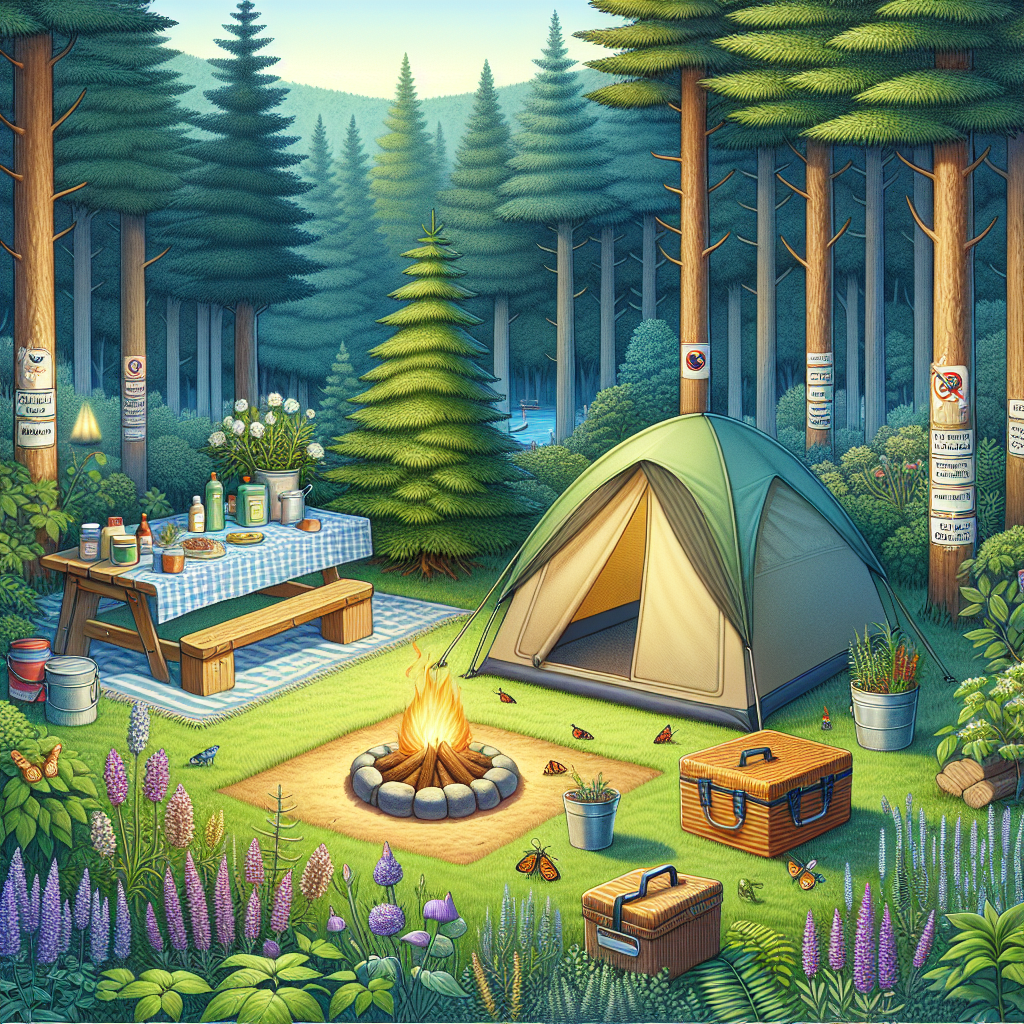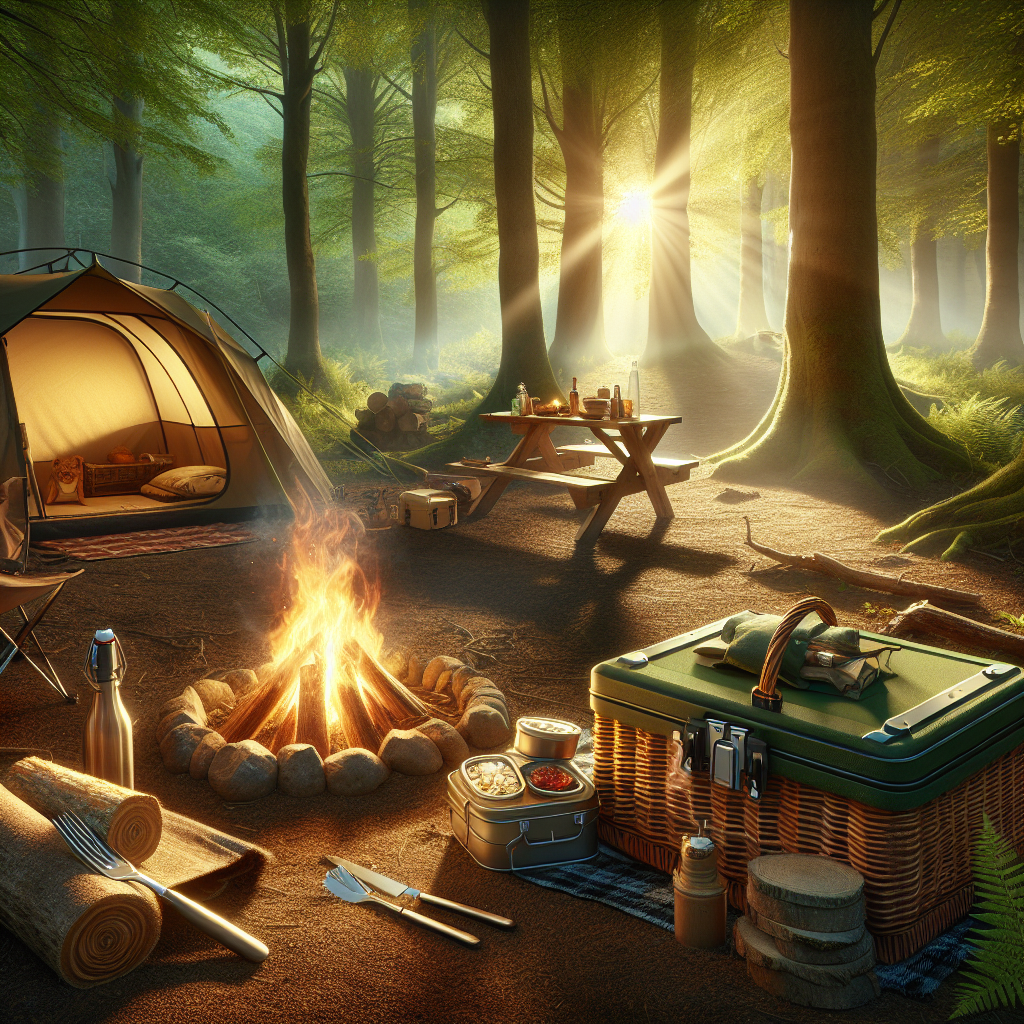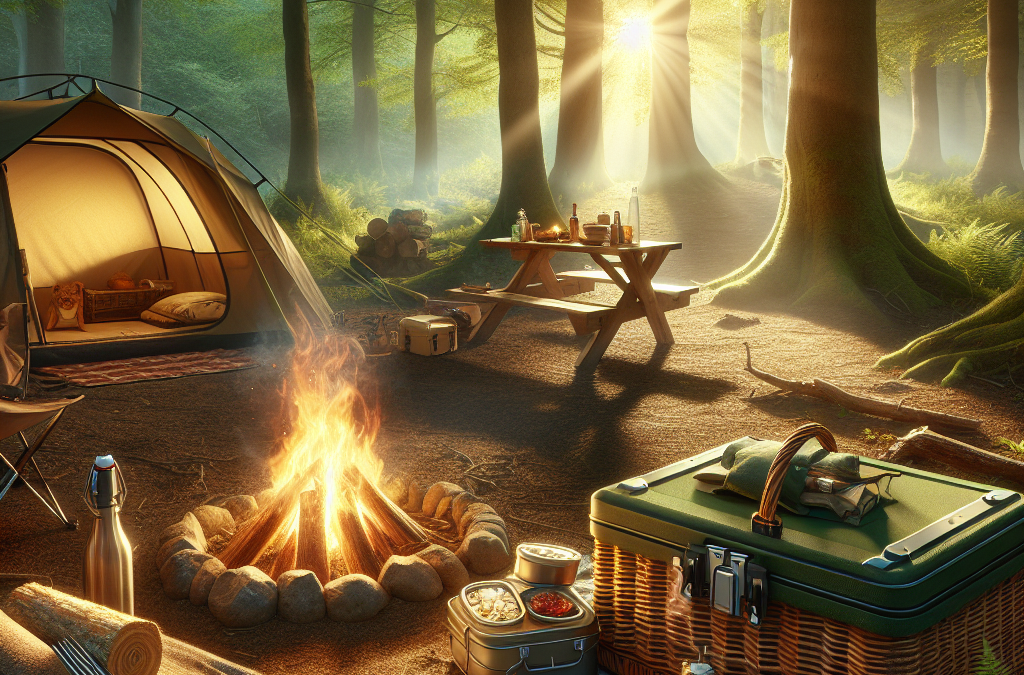You’ve packed your gear, charted your course, and you’re ready for your outdoor escapade. But there’s one potential menace that often goes overlooked until it’s too late – insects and pests at your campsite. At TrailTrekTribe.com, we understand that staying in the great outdoors often means sharing your space with the local critters. That’s why we’ve prepared a comprehensive guide to tackle the nuisances at the campsite. From preventative measures and sustainable practices to remedies you can employ in the midst of nature, this article brings together our collective wisdom and experiences to help you enjoy your adventure without letting pests bug your spirit.
Understanding the Insects and Pests in the Wilderness
While the prospect of uninvited pests on your camping trip may be daunting, remember, you’re visiting their home, so cohabitation is key.
Necessity of Co-existence with Wildlife
When you step into the wilderness, you’re becoming a part of a complex ecosystem teeming with life of all sizes. It’s important to appreciate that insects and other critters play essential roles in these ecosystems. They break down waste, pollinate plants, and serve as food for larger animals.
Common Types of Insects and Pests Found in Camping Areas
Typical pests and insects found in camping sites range from ants, mosquitos, wasps, and spiders, to larger creatures like raccoons and birds. Familiarize yourself with commonly spotted species in your chosen campsite.
Recognizing Harmful Versus Harmless Creatures
While some bugs are harmless, others may inflict painful stings or bites, and some may even carry diseases. Ahead of your trip, learn about different species of insects and pests found in the camping area and how to identify if they are harmful or harmless.
Maintaining a Clean Campsite
Your behaviors and actions can significantly impact your experiences with insects and other pests. A clean campsite is a primary deterrent of unwelcome visitors.
Importance of Keeping Your Campsite Clean
A clean campsite is not just about aesthetics. Food waste and litter attract pests, increasing your chances of unwanted encounters.
Best Practices for Waste Disposal
Proper waste disposal consists of separating recyclable from non-recyclable waste. Keep your food and trash stored in containers, and as far away from your sleeping area as possible. At the end of the camping trip, ensure all garbage is removed.
Cleaning Up After Meals
Clean up immediately after eating to avoid attracting wildlife with food remnants. Rinse tableware and clean surfaces where food was prepared.

Choosing the Right Campsite to Avoid Insects and Pests
Choosing the right campsite can drastically reduce your chances of encountering pests.
Researching, Preparing and Inspecting Your Preferred Campsites
Research your preferred campsites before heading out. Check if there are any reports of pest infestations. Once you arrive, inspect the site for signs of pests.
Understanding the Bugs that Each Type of Terrain Attracts
Different terrains attract different pests. For instance, swampy areas are a breeding ground for mosquitoes, while ants are often found in sandy or clay-based soil.
Using Natural Bug and Pest Repellents
Nature itself provides tools to ward off its critters.
Plants That Repel Insects and How to Use Them
Plants like marigold, lavender, lemongrass, and geranium are known for their insect-repelling properties. Grow them around your home or rub their crushed leaves on skin as a natural deterrent.
Natural Oils and Extracts That Can Deter Pests
Essential oils such as citronella, eucalyptus, and rosemary can also deter pests. Add a few drops to a spray bottle filled with water and spray around your campsite.
DIY Natural Bug Sprays and Lotions
Another option is to create your own bug sprays using a mixture of essential oils and other natural ingredients like apple cider vinegar or witch hazel.

The Use of Synthetic Repellents
While natural methods are great, synthetic repellents often provide stronger protection.
Appropriate and Responsible Use of Insect Repellents
Always use insect repellents responsibly. Follow the directions on the product packaging for effective and safe usage.
Recommended Brands and Insect Repellent Products
There are several reliable pest repellent brands on the market. Some well-recognized names include OFF!, Cutter, and Ben’s.
Potential Risks and Side Effects of Synthetic Repellents
Though effective, synthetic repellents can have side effects ranging from skin irritation to more severe allergic reactions. Always test a small amount on the skin before applying it fully.
Insect-Proofing Your Tent and Gear
Certain measures can be taken to ensure your camping equipment is less appealing to bugs.
Choosing and Using an Insect-Proof Tent
Invest in an insect-proof tent with mesh windows and doors. This will allow airflow while keeping the bugs out.
Sealing and Storing Food and Gear
Keep your food sealed in airtight containers and stored away from your sleeping area. Ensure zippers and bags containing your gear are kept closed to prevent bugs from finding a way in.
Protective Clothing and Equipment
Wearing long-sleeve tops, pants, hats, and socks can help protect against bites. For added protection, consider using clothing treated with insect-repellent.
Living Harmoniously with Insects and Pests
While removing all insects and pests from your campsite would be ideal, it isn’t realistic. We must learn to co-exist.
Creating a Barrier Between Your Campsite and Wildlife Habitat
Creating space between your campsite and nearby wildlife habitats can significantly reduce encounters with pests.
Educating Campers on How to Interact with Wildlife
Teaching your fellow campers how to react when they encounter wildlife is crucial. Always respect their space and never attempt to feed or touch them.
The Do’s and Don’ts When Encountering Insects
Do observe insects from a distance, but don’t poke or agitate them. Most insects won’t bother you unless threatened.
Managing Bites and Stings
Despite best efforts, you may still experience bites or stings. Knowing how to manage these is essential.
Common Types of Insect Bites and Stings
Common insect bites or stings come from mosquitoes, ticks, spiders, and bees. Each emits different symptoms and requires different treatments.
First Aid and Remedies for Different Bites and Stings
Basic first aid for bites includes cleaning the area, applying a cold compress, and using an antihistamine cream to reduce itching. Always check for signs of more serious reactions like difficulty breathing or swelling of the mouth or throat.
When to Seek Medical Attention
If symptoms persist despite first aid, or if the person bitten has a severe reaction, seek medical help immediately.
Teaching Kids and Novices about Dealing with Insects and Pests
It’s equally important to educate newer or younger members of your camping group about dealing with pests.
Informative Games and Workshops
Turn learning into fun by organizing games or workshops that educate about different insects and pests, how to avoid them, and how to respond when bitten or stung.
Can-Do and Can’t-Do List for Children
A clear list of what kids should and shouldn’t do can help them understand their role in keeping the campsite clean and safe.
Involving Kids in Cleaning and Maintaining the Campsite
involving kids in the cleaning and maintaining process can instill responsibilities and highlight the significance of cleanliness in pest management.
Lessons from Veteran Campers and Members of the Tribe
Nothing beats the tried and tested advice from seasoned campers.
Sharing of Personal Experiences
Encourage sharing of personal experiences and techniques as each camper’s perspective provides unique knowledge and understanding.
Tips and Advice from Seasoned Outdoor Enthusiasts
Listen to the tips and advice of those with more experience. Their wisdom can prove invaluable in your own camping endeavors.
Promoting Community Engagement and Support
As a part of the TrailTrekTribe, remember that we don’t just face the wilderness alone – we are a community. Let’s support each other to ensure an enjoyable and safe outdoor experience for all.

